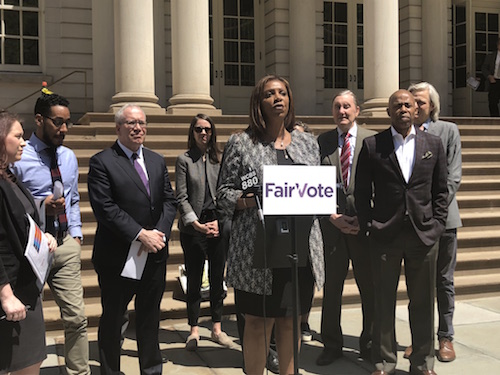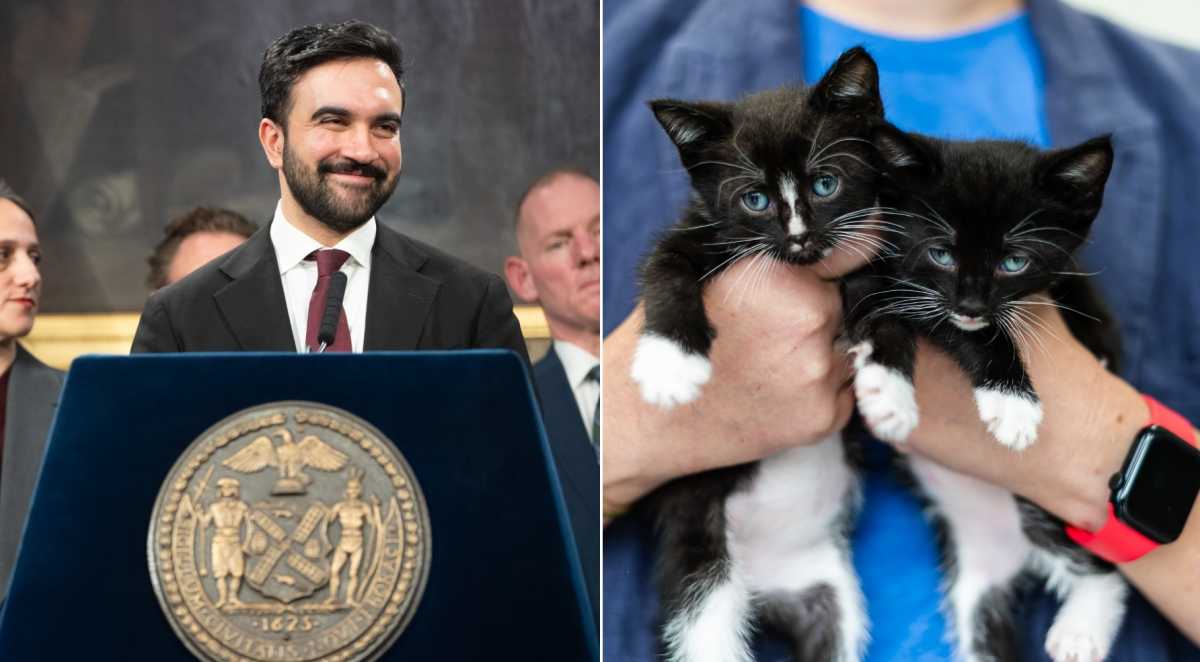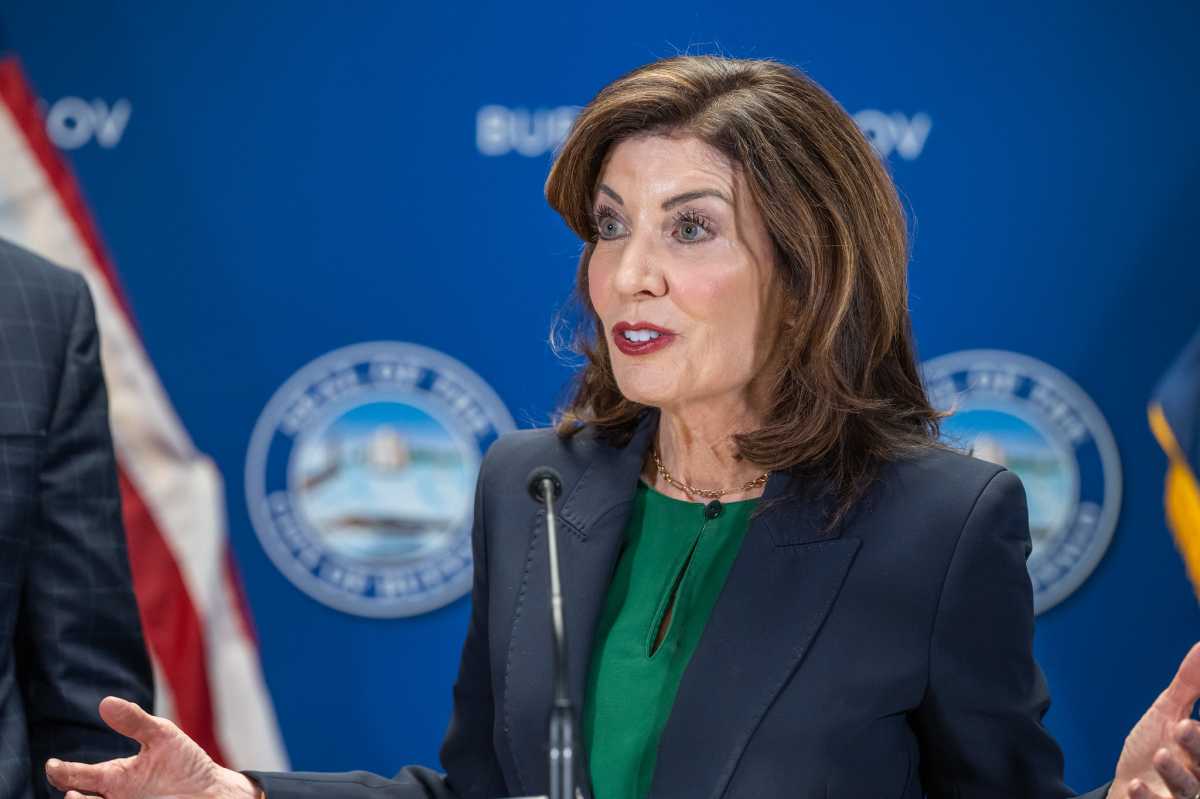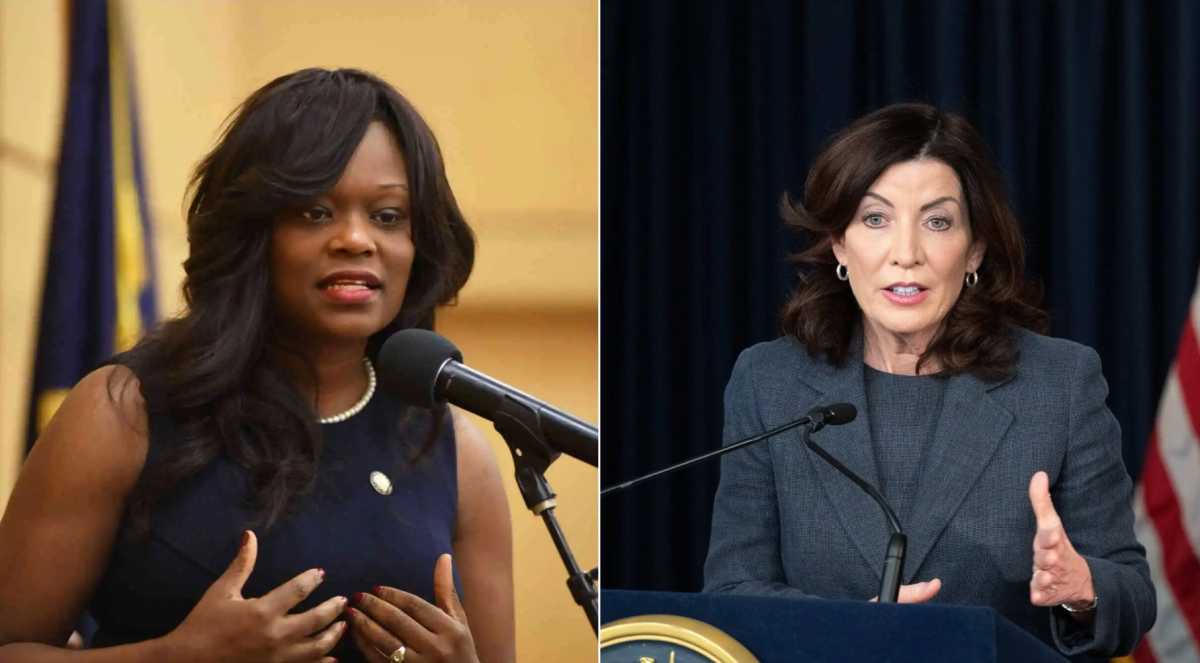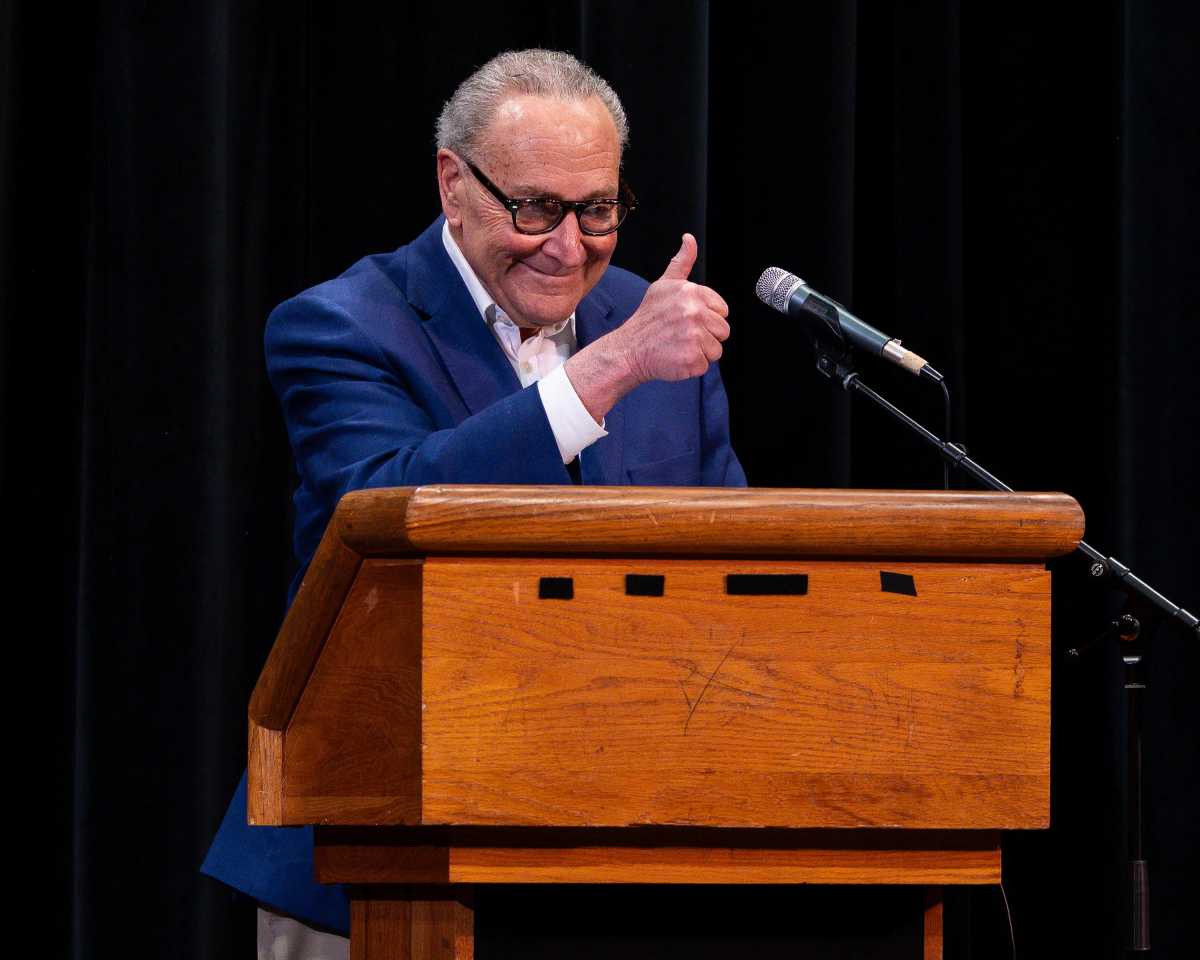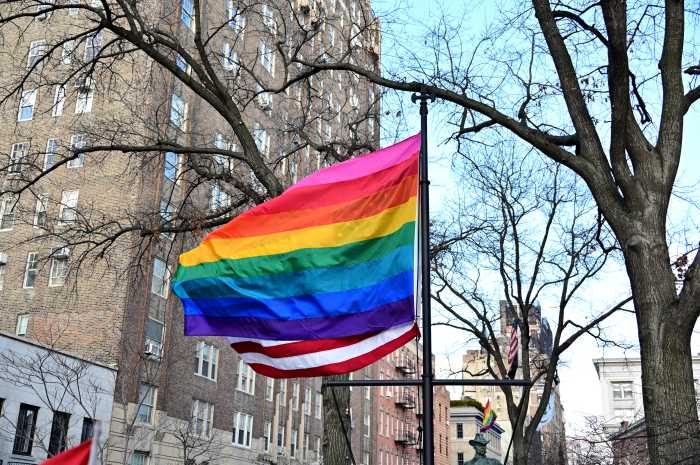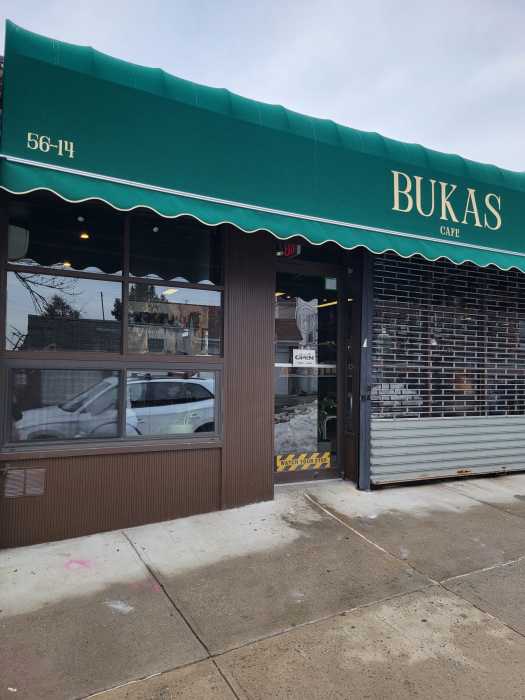Elected officials rallied together today on the steps of City Hall to call on the Mayoral Charter Revision Commission to implement instant runoff voting (IRV).
With IRV, voters will rank candidates in order of preference. If a candidate earns more than half of the votes – that is, more than half of first choices – then that candidate wins. If not, all but the top two vote-getters are eliminated, and ballots from the eliminated candidates go to the runoff finalist who is ranked next on each ballot. The winner will earn a majority of the instant runoff vote in this head-to-head contest without voters having to vote a second time.
Brooklyn Borough President Eric Adams, City Council member Brad Lander (D-Park Slope, Windsor Terrace, Kensington, Gowanus), Public Advocate Letitia James, and NYC Comptroller Scott Stringer called for the voting change as an important step in giving voters a greater voice in elections and bringing more fair representation to city government.

“Instant runoff voting (IRV) is a win-win-win. It increases voter participation. It makes our elections more inclusive, by encouraging all candidates to reach out to all communities. And it will save the city millions of dollars,” said Lander.
Lander introduced the bill for IRV back in 2014, as a less expensive and better option to the current runoff system that is held two weeks after primary elections with electronic voting machines. Currently, if no candidate gets 40% of the vote there is a separate runoff election between the two top finishers.
Used in 15 American cities, IRV improves voter turnout over traditional “delayed runoff” systems, saves taxpayer money, and rewards candidates who reach out to more voters. Because voters are allowed to rank candidates, the system is called “ranked choice voting” in some cities using it like Minneapolis, San Francisco and Oakland.
James, who in 2013 participated in a runoff election which cost the city $13 million and saw a turnout of only 6.9 percent, noted the IRV system’s ability to decrease polarization and increase civic engagement.
“It forces you [candidates] to appeal to all voters as opposed to just the Democratic base and this means more engagement. It means more democracy. It means listening to people that you might not listen to and a freer exchange of ideas. It’s hard enough to get people to the polls once, let alone a second time” said James.
If a system like IRV were implemented, voters electing government leaders would be more reflective of the city’s racial and ethnic makeup as older, whiter and wealthier voters are more dominant in runoffs. IRV in other cities has shown to give more power to racial minorities and low-income communities.
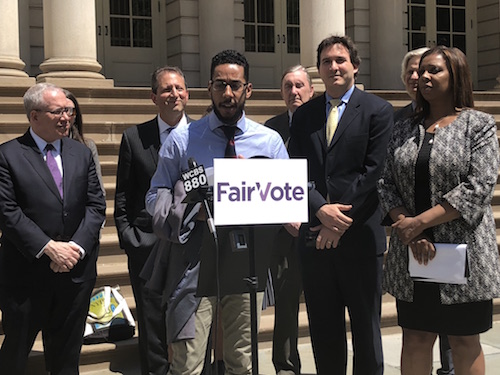
“We want to make sure that the people that represent us are reflective of the city of New York. This reform has the ability to make elected officials not take a polarizing stand on issues because they will need the second and third place votes. Which will make it so they are more representative of the ideology of the larger population of the people they want to represent. This will really let us move forward in an age where it really feels like ‘us versus them’” said City Council member Antonio Reynoso (D-Bushwick, Williamsburg).
The proposed reform will look to save taxpayer money, in particular advocates claim the city has the potential to save about $10 to $15 million.
“Run-off elections take up time and resources – even though most voters don’t participate in them. We need the broadest possible coalition of New Yorkers voting in our elections, rather than a few party faithful. And we cannot afford to be wasting tens of millions of dollars on rounds of elections that people don’t participate in,” said Stringer.
Mayor Bill de Blasio announced during his annual State of the City Address that the Mayoral Charter Revision Commission would be focusing on campaign finance reform, as well as voting reform, and held its first meeting last week.
“I support instant runoff voting because it enhances the voice of the people while saving taxpayers money. We have a golden opportunity to implement electoral reforms that expand engagement in our democracy, particularly in communities who have historically faced under representation,” said Adams.
The commission has the power to increase voter participation by including IRV as a charter amendment on the November ballot. If passed, the change, according to the group would take a couple years for implementation including voter education that would have to be done ahead of the 2021 election year. This referendum would only apply to primaries in city-wide elections.


